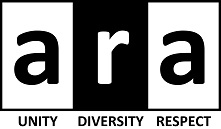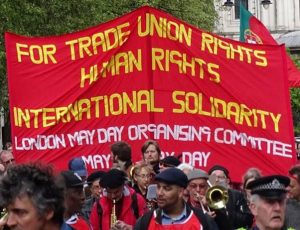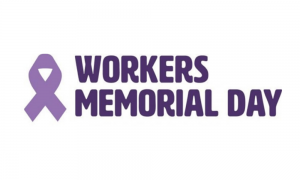The Sharpeville Massacre 21st March 1960
The Sharpeville massacre occurred when a crowd of between 5,000–7,000 black people protested at the police station in the Black township of Sharpeville, near Vereeniging, South Africa on March 21, 1960 against racist ‘pass laws’ which restricted their ability to move around freely in their own country.
The Apartheid police started shooting into the crowd. A total of 69 people were killed, including 8 women and 10 children, and 180 people were injured, including 31 women and 19 children.
The ban on political opposition parties and the arrest of Nelson Mandela led to the formation of the Anti-Apartheid Movement in overseas countries, including the UK, which campaigned for their governments to enact embargoes of Apartheid South Africa. In the face of Apartheid state-sponsored violence, the ANC (African National Congress) developed armed resistance.
In South Africa today, March 21 is a public holiday in honour of human rights.
Kukejan 11, Eddie and Thejavi 13
The experiences of racism of a very young Asian girl growing up under the Apartheid Regime
1954: My political awareness started when I was 5 years old and living in rural Verulam, a town outside Durban. My brother and I used to wait for the Zulu prisoners to sing songs in Zulu whilst building the roads. These prisoners were closely monitored by a white officer in khaki outfit holding a whip which was used frequently if the prisoners slowed down or rested in the hot African sunshine of around 39 degrees C. Later, we learnt that the Zulu songs sung were freedom songs such as “Shosholoza”.
1955: The medical service under Apartheid
My sister was diagnosed with asthma and it was a financial drain as my dad and mum had to pay our school fees, medical bills and essential bills. My parents were told of a white doctor who could provide good treatment for my sister. As ‘blacks’, we could only see a white doctor by appointment at the end of the day but we had to use the back door not the front entrance. The fees and medication had to be paid for on that day. In an emergency, we weren’t allowed to take our sister to the nearest ‘white hospital’ and the ‘black hospitals’ were miles away.
1960 21st March: The Sharpeville Massacre occurred when 69 peaceful protesters were killed and the government sent troops to all 4 provinces to disperse protesters. South Africa declared a Republic on 5th October. More powers were handed to police to check that ‘blacks’ (Africans) were checked for ‘Travel Passes’ when entering the cities or ‘white areas’. Any ‘black’ found without an ID document was arrested and taken to prison.
1964: Nelson Mandela sentenced to life in prison at Robben Island.
1968: No toilets at work for non-white workers
My family was very excited as my father (a jeweller skilled in engraving, diamond setting and expert in Indian jewellery) was able to obtain a job with a white jeweller. All went well until the end of the second month when he was dismissed. Apparently, he was coming out of a ‘white men’s’ toilet when a white customer complained to his boss and the police. His employment was terminated as there wasn’t a toilet for ‘non-whites’.
1969: Under the 1950 Groups Act, we were ordered to move from the area where we lived into an Indian township called Chatsworth and we had no street names – just Road 125 Unit 1. I simply hated it as we were living only with people of Indian heritage and we missed our friendships with Africans and ‘coloureds’ (people of dual white and non-white heritage). There were no shops to buy essentials. We were not allowed to open shops until years later. There was a delivery van for milk at 5am in the morning and a van selling bread and cakes around 9am or later. The delivery of bread wasn’t reliable and we had to travel to another town by bus to purchase such essentials.
1969: Steve Biko, who was involved with the National Union of South African Students, was dissatisfied and resigned. He then founded the South African Students’ Organisation.
1970: Republic Day Student Boycott
My matriculation year. All the final year students decided that we were going to boycott Republic Day which was held on 31st May. We had to assemble in the hall where our white headmistress (Miss Ross from England), wearing a black graduation gown and hat, walked up to the podium and, after singing hymns, announced that we would be singing Die Stem (the white national anthem). None of the 600 Indian girls sang – they remained silent. She requested it three times and we just stood in silence. She then marched out from the hall and contacted the Education Department. As we had participated in the boycott, our Debutantes Ball was cancelled and we were told that there would be no end of year party for the final year students as we had been insolent.
1972: Student boycott dispersed by tear gas
My first direct action came about when Abraham Tiro (an activist) was expelled from his university on graduation day when he attacked the poor provision for ‘Bantu Education’. ‘Bantu Education’ offered very little funding for the majority of the Africans. As a result, all black campuses went on a solidarity strike and my college as well. We decided to boycott lectures so the police used tear gas to disperse us. We then took cover in a Dutch Reformed Church. However, the church reverend called the police and we then sought shelter at Mahatma Gandhi’s Hall. During this period, I met Steve Biko who addressed the students and congratulated the Indian students for not sitting on the fence and getting involved in the struggle. We spent two weeks at the Hall before we were informed that we would be expelled from college and our grants would be demanded in one lump sum. I then refused to apologise to the Rector and my parents promised the College that I would not take part in any further strikes.
1973 Dec: I was concerned as I completed my three-year Teacher Training qualification and waited to see if I would be allocated a teaching post. Whilst my friends were notified earlier in December, I had to wait a further two weeks before I was notified.
1974: Abraham Tiro killed and Indian tennis tournament cancelled
Abraham Tiro was killed in a parcel bomb blast in Botswana and the white government were the perpetrators. We were not allowed to protest or participate in boycotts. India cancelled a tennis tournament with South Africa. My Uncle (MN Pather) was arrested and his passport withheld as he was instrumental in India withdrawing from the tournament.
1975: Repression against family members
My mum and sisters left Durban as security police were bugging our telephones and my uncle’s sons were not allowed to travel to the UK to take up further education.
1976 June: The Soweto Uprising
The Uprising in Soweto changed the socio-political landscape in South Africa and 176 died according to government figures. Children were protesting about the introduction of the Afrikaans language and it becoming one of the official languages.
1977: Steve Biko died in detention in September 12th. We wanted to attend his funeral but my uncle informed us that security police were checking trains and buses and recording names of those attending the funeral. His lawyer advised us not to travel.
1980: My Uncle was able to travel to the United Nations and address the assembly and requested the sanctions against South Africa to continue. He was arrested at Johannesburg Airport by security police and he was placed under House Arrest.
1984: My uncle passed away under house arrest.
1987: I joined the Anti-Apartheid Movement in Harrow to continue the struggle.
1990: Nelson Mandela was released from prison after 27 years on 11th February. With Harrow Anti-Apartheid Movement, I collected funds for Nelson Mandela’s election Campaign.

1994: Nelson Mandela became the first black president of South Africa.
I participated in the South African elections and became a member of the ANC (African National Congress).
1997: Nelson Mandela hailed Steve Biko as a martyr of the Anti-Apartheid Movement and called him “the spark that lit a veld fire across South Africa”.
Hemuna
FOOTNOTE: In 1993, Harrow Anti-Apartheid Movement worked with other organisations to set up Harrow Anti-Racist Alliance, which became the Anti-Racist Alliance Trust (Aratrust) in 2000. Harrow Anti-Apartheid Movement leaders comprise most of Aratrust’s Trustees to this day. And we are very proud that Hemuna is one of our Aratrust Supporters.





















